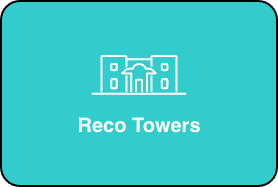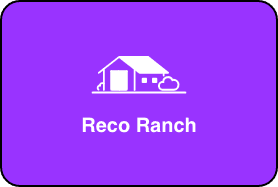Finding Strength in Sobriety Through RECO’s Community


Welcome to a Life of Sobriety
The mission of RECO Institute
At the heart of Delray Beach, Florida, RECO Institute embarks on a transformative mission to provide men and women at the outset of their recovery journey with both a sanctuary and a community. Recognized for its commitment to fostering personal growth and sobriety, RECO Institute’s mission weaves together a comprehensive support network, evidence-based treatment approaches, and transitional sober living residences. Here, recovery is not just about abstinence but about finding a new way of life filled with purpose, health, and happiness. By bridging the gap between intensive treatment and independent sober living, RECO ensures that every individual has the tools, community, and environment necessary to build a solid foundation for long-term recovery.
Overview of sober living in Delray Beach, Florida
Delray Beach, renowned for its picturesque landscapes and vibrant community, serves as an idyllic backdrop for the journey to sobriety. Sober living homes in Delray Beach offer more than just a place to stay; they provide a supportive and structured environment where individuals can thrive. Surrounded by peers who understand the challenges of recovery, residents gain the opportunity to engage in daily routines, responsibilities, and recovery activities, all designed to reinforce their sobriety. The climate, culture, and community of Delray Beach play a crucial role in making the transition to sober living both uplifting and triumphant.
The importance of a supportive living environment in early recovery stages
The initial stages of recovery are often the most delicate, laden with challenges and temptations that can derail one’s progress. A supportive living environment, such as the one provided by the RECO Institute, becomes a critical factor in navigating this delicate time. Such environments are tailored to address the unique needs of individuals recovering from substance use disorders, offering a blend of peer support, structured living, and access to professional care. This multifaceted approach ensures that residents not only remain sober but also learn valuable life skills, build confidence, and forge meaningful relationships, all of which contribute to a strong and resilient foundation for a sober life.
The Foundation of Support in Sober Living
Understanding the structure of sober living residences
Sober-living residences provide a structured, safe, and supportive environment that bridges the gap between inpatient treatment and independent living. At RECO Institute, the format of these sober living homes is designed to support both the individual and communal aspects of recovery. In a typical sober living residence, residents are expected to follow guidelines that foster responsibility, such as maintaining sobriety, participating in house chores, and engaging in employment or education. This structure is essential for creating a sense of normalcy and accountability, teaching valuable life skills that individuals can carry into their long-term sobriety. By living in a community with shared experiences and goals, residents support each other’s journey, providing a foundation that is instrumental in building a new life free from substance dependency.
The role of the house manager and support staff
The house manager and support staff in a sober living residence play crucial roles in the recovery journey of its residents. These individuals are often in recovery themselves and bring firsthand knowledge and empathy to their roles. They are responsible for ensuring that the house rules are followed, facilitating house meetings, and providing support to residents when facing challenges. The support and care team at RECO Institute embodies understanding and guidance, making them an invaluable part of the recovery process. They not only manage the logistics of the sober living environment but also provide emotional support and mentorship. Their involvement helps create a culture of trust, accountability, and mutual respect, which is essential for maintaining a stable and positive environment conducive to recovery.
Creating a stable environment for long-term recovery
Creating a stable environment for long-term recovery goes beyond enforcing rules and providing a roof over one’s head. It involves laying down a foundation where residents can learn to trust themselves and others, explore their capabilities, and find fulfillment in a sober lifestyle. Stability in this context means routine, support, and consistency elements that are often lost in the chaos of addiction. A stable environment encourages growth and fosters resilience, empowering individuals to face life’s challenges without reverting to substance use. At RECO Institute, the aim is to provide a serene and structured setting where residents can focus on their recovery goals, internalize the lessons learned in treatment, and build a support network that will continue to buoy them long after they have moved on from sober living. This stability is pivotal to not only achieving sobriety but also maintaining it and flourishing in all areas of life.
Integrating Treatment and Community Support
The collaboration between RECO Intensive outpatient programs and sober living
RECO’s integrated approach to recovery highlights the seamless connection between its Intensive outpatient programs and sober living residences, creating a dynamic ecosystem for sustained sobriety. Participants of the RECO Intensive outpatient program benefit from a customized treatment plan that not only focuses on the medical and psychological aspects of recovery but also emphasizes the importance of a supportive living environment. This unique combination ensures that individuals have continued support as they navigate the complexities of reintegration into daily life, with sober living acting as an anchor that reinforces the habits and coping strategies learned during outpatient treatment. By living in a community that values sobriety and wellness, residents are able to apply their new skills in real-world settings, significantly lowering the risks of relapse and promoting long-term recovery.
Participation in 12-step meetings and other support groups
An essential component of the recovery journey at RECO is the encouragement to participate in 12-step meetings and other support groups. Incorporating Alcoholics Anonymous meetings integration and information on Narcotics Anonymous meetings into the recovery process facilitates a broader understanding of addiction and recovery. These meetings provide invaluable peer support and a platform for sharing experiences, fostering a sense of belonging and mutual understanding among participants. The camaraderie and accountability found within these groups complement the therapy and counseling provided through RECO’s outpatient programs, creating a comprehensive support network that addresses both the individual and communal aspects of healing.
Access to addiction treatment programs and resources
RECO Institute prides itself on offering extensive access to addiction treatment programs and resources that cater to the myriad of needs presented by persons in recovery. This holistic approach to treatment includes a range of therapeutic modalities, from cognitive-behavioral therapy and individual counseling to group therapy sessions and family support systems. Resources are thoughtfully designed to empower individuals, providing them with the tools and knowledge necessary to navigate the challenges of recovery. Additionally, RECO’s commitment to education and outreach ensures that both residents and the wider community have access to up-to-date information and support, including understanding the signs of withdrawal and recovery, which is crucial for fostering a supportive environment conducive to healing and long-term sobriety.


Navigating Sobriety Through Peer Support
The power of the alum program and peer mentorship
The RECO Institute distinguishes itself with a robust alum program that emphasizes the transformative power of peer mentorship in the sobriety journey. The connection between those who have navigated the challenges of recovery and individuals newly embarking on this path offers an unmatched level of empathy, understanding, and motivation. Alums, having thrived through their own experiences, become mentors and sources of inspiration, sharing their successes and obstacles. This cycle of support is a cornerstone of RECO’s community, fostering a space where encouragement and collective wisdom pave the way for personal growth and sustained sobriety. Mentors play a crucial role in modeling healthy behaviors, offering guidance, and instilling hope, proving that a fulfilling life in recovery is not only possible but within reach.
Engagement in the recovery housing community
Living in a recovery housing community, such as those offered by the RECO Institute, presents unique opportunities for individuals to engage with peers who are similarly committed to a life of sobriety. This collaborative atmosphere promotes shared experiences and mutual support, essential components for maintaining a sober lifestyle. Engagement within this community is facilitated through organized activities, group therapy sessions, and casual interactions, all designed to strengthen the bonds between residents. These connections are vital, offering a network of support that extends beyond the walls of the residence. This feature of the recovery journey at RECO ensures that no one has to face the challenges of sobriety alone. The sense of belonging and community found within RECO’s housing encourages continuous commitment to recovery and personal development.
Benefits of living in a group home environment
The group home environment at RECO Institute is meticulously structured to combine the benefits of communal living with individual recovery goals. Living alongside others who are also working towards sobriety offers several advantages, including mutual support, shared responsibility, and the collective pursuit of a healthier lifestyle. This social framework is instrumental in reducing the feelings of isolation and loneliness that often accompany recovery from substance use disorders. Furthermore, residents learn to navigate interpersonal relationships, manage conflicts, and support each other’s successes and setbacks, reinforcing the social skills necessary for a balanced life outside of sober living. The group home setting fosters an atmosphere of accountability and camaraderie, which are vital for achieving long-term recovery. By embracing these collective experiences, individuals in RECO’s sober living residences not only work towards their sobriety but also build a foundation for enduring wellness and fulfillment.
Real-Life Success Stories from RECO’s Community
Alumni program success and its impact on recovery
The graduation from a recovery program marks the beginning of a life-long journey of sobriety and personal growth. At RECO Institute, the alum program plays a pivotal role in this continuous journey, serving as a beacon of hope and a source of successful recovery stories from the RECO community. The stories of alums are not just tales of overcoming addiction but are testaments to the resilience of the human spirit, underscored by the comprehensive support system that RECO provides. Through peer mentorship, alums engage in a cycle of giving back, offering guidance, support, and inspiration to those still navigating their recovery path. This circle of support nurtures recovery, demonstrating how the impact of the alum program extends far beyond the individual, seeding a community-wide culture of recovery and success.
How house meetings contribute to personal growth and sobriety
House meetings within sober living residences are more than administrative gatherings; they are foundational to the culture of recovery and personal development that defines the RECO Institute. These meetings serve as an essential platform for residents to share their experiences, challenges, and triumphs in a safe and supportive environment. By fostering open communication, house meetings encourage accountability and self-reflection, essential components of sustained sobriety. Through these interactions, residents develop confidence and skills in navigating relationships and conflicts, contributing to their overall personal growth. The supportive network shared responsibility, and collective wisdom cultivated in these meetings empower individuals to maintain their commitment to a sober lifestyle, underscoring the critical role of communal living in recovery.
Finding strength in the stories of others
One of the most potent aspects of recovery is the realization that you are not alone on your journey. The stories of others who have walked the same path offer invaluable lessons, hope, and encouragement. RECO Institute recognizes the transformative potential of these shared experiences, integrating the sharing of personal narratives as a core element of their recovery community. Through alum testimonials, peer mentorship in sobriety support, and group therapy sessions, individuals find strength and camaraderie in the collective journey to sobriety. Witnessing the tangible success of others who have achieved long-term recovery serves as a potent motivator, reinforcing the belief in the possibility of change and the power of a supportive community. These stories not only highlight the challenges faced but, more importantly, celebrate the triumph of achieving and sustaining a sober life, offering a roadmap to those still in the throes of their recovery journey.
Exploring Paths to Recovery
Transitional housing programs play a pivotal role in the continuum of care for individuals recovering from substance use disorders. The transition from an inpatient treatment facility to independent living can be fraught with challenges and temptations. Transitional housing programs, like those offered by the RECO Institute, provide a crucial intermediary step that supports individuals in this critical phase. These programs offer not just a safe and sober living environment but also structure, peer support, and access to ongoing therapy and counseling services. By bridging the gap between intensive treatment and real-world living, transitional housing helps mitigate the risk of relapse, reinforcing the skills and strategies necessary for maintaining long-term sobriety. The emphasis on accountability, mutual support, and continued personal growth within these programs lays a solid foundation for a successful and sustained recovery journey.
Understanding the diversity of treatment options available is crucial for anyone embarking on the path to recovery. Traditional inpatient and outpatient recovery support programs are often complemented by alternative and holistic therapies, creating a comprehensive approach to addiction treatment. In recognizing the complex and multifaceted nature of substance use disorders, the RECO Institute integrates a multitude of therapeutic modalities, including cognitive-behavioral therapy, family therapy, peer support groups, and experiential therapies. Such a diverse treatment landscape ensures that individuals can find the therapies that resonate most with them, addressing not just the symptoms of addiction but its underlying causes. By understanding the plethora of available treatment options, individuals are better positioned to make informed decisions about their care tailored to meet their unique needs and circumstances.
Fostering the journey to a sober life requires more than just abstinence from substances; it necessitates a comprehensive, customized care approach that addresses the physical, emotional, and spiritual needs of each individual. At RECO Institute, the approach to recovery is rooted in the belief that each person’s path to sobriety is unique. The integration of a personalized treatment plan, developed in concert with highly skilled therapists and counselors, ensures that each individual’s specific recovery goals and challenges are addressed. This customized care extends beyond clinical treatment, incorporating life skills training, vocational support, and community engagement to equip individuals with the tools needed for a fulfilling, sober life. Through this holistic and individualized approach, the RECO Institute not only supports individuals in achieving sobriety but also empowers them to rebuild their lives with purpose, dignity, and hope.


A Day in the Life at RECO Sober Living
Routine and structure in sober living homes
At RECO Sober Living, daily life is steeped in routine and structure, fundamental elements that facilitate the journey to sustained recovery. From the moment residents wake up, their day is designed to promote productivity, accountability, and healing. Regularly scheduled meal times, chores, and check-ins ensure that every person contributes to the household, fostering a sense of responsibility and community. This framework is not only about maintaining the orderliness of the living spaces but also about instilling life skills that residents will carry into their sober futures. The structured environment, underscored by consistent wake-up times and curfews, helps individuals regain control over their lives, an essential step in overcoming substance use disorders.
Activities and responsibilities of residents
Living at RECO brings an array of activities and responsibilities that are key to recovery. Beyond the obligations of maintaining the living space, residents engage in structured programs that include group therapy, 12-step meetings, and one-on-one counseling sessions. These activities are designed to address both the psychological and physical aspects of recovery, facilitated by professionals who specialize in addiction treatment. Participation in community service and recreational activities is highly encouraged, providing residents with opportunities to rebuild their sense of self-worth and find joy in sober living. By balancing individual responsibilities with communal activities, RECO ensures that each day is not only structured but also enriching, promoting growth and healing on multiple levels.
Integration of sober living programs into daily life
The integration of sober living programs into the daily lives of residents is a testament to RECO’s unique recovery methodology. This approach seamlessly combines the practical aspects of sober living, such as adhering to house rules and fulfilling daily responsibilities with comprehensive recovery support. Such support includes access to outpatient therapy, educational workshops, and career counseling, all designed to prepare residents for independent living. By weaving these components into the fabric of everyday life, RECO fosters an environment where recovery is lived and learned, not just taught. Residents learn to navigate the challenges and triumphs of sobriety in real time, fully supported by a community that understands the nuances of recovery. This holistic integration ensures that the transition from sober living to autonomous living is not just possible but poised for success.
Joining the RECO Recovery Community
How to become a part of the RECO Sober Living and RECO Intensive programs
Embarking on a recovery journey is a courageous step, and choosing the right program to support this journey is crucial. The RECO Sober Living and RECO Intensive programs offer a comprehensive pathway to sobriety, combining the benefits of structured living environments with intensive outpatient support. Individuals looking to become part of this transformative community start by reaching out to RECO’s dedicated admissions team, where they’ll find a welcoming space to discuss their needs and recovery goals. Through an initial assessment, the team works to understand each individual’s situation, guiding them to the program that best fits their path to sobriety. This personalized approach ensures that every resident begins their journey on solid ground, supported by a program that genuinely meets them where they are.
The integration of RECO’s sober living and intensive outpatient programs creates a harmony that significantly enhances the recovery experience. Residents not only benefit from a safe and inspiring environment but also gain access to a wide array of therapeutic services designed to address the roots of addiction. From one-on-one counseling and group therapy to experiential workshops and educational classes, the programs are tailored to promote healing and growth on all levels: physical, emotional, and spiritual.
The process of admitting to a sober living house
Gaining admission to a sober living house at RECO involves a straightforward and compassionate process. The admissions process for sober living is designed to be as seamless as possible, ensuring that those seeking help can begin their recovery journey without unnecessary delays. After the initial contact and assessment, potential residents will discuss their financial options and plan their arrival. RECO’s team is committed to transparency and support throughout this process, offering guidance on everything from insurance coverage to travel arrangements.
A vital component of the admissions process is preparing residents for the expectations and responsibilities of sober living. This preparation includes understanding the foundational rules of the residence, such as maintaining sobriety, participating in house meetings, and engaging in the community’s recovery activities. By setting these expectations upfront, residents are better equipped to thrive in their new environment, making the most of the supportive and structured community at RECO.
Locating sober living near you for a stable and supportive recovery journey
For many, finding a sober living residence that feels like a perfect fit can be a daunting task. However, the RECO Institute makes this process easier by offering a range of sober living homes designed to meet diverse needs and preferences. These homes are situated in the serene and welcoming environment of Delray Beach, Florida, known for its supportive recovery community and beautiful landscapes that enhance the healing process.
Individuals interested in finding a sober residence that aligns with their recovery journey can utilize resources such as locating a sober residence near you, which simplifies the search for the ideal living situation. This tool takes into account personal preferences, such as location and community atmosphere, ensuring that every person finds a place where they feel comfortable and supported.
Choosing to join the RECO recovery community means embarking on a path to sobriety surrounded by peers and professionals who understand the journey’s challenges and triumphs. With a commitment to personalized care and a deep understanding of the importance of a supportive environment, RECO offers a foundation for lasting recovery. Whether through participating in the intensive outpatient program, living in one of the sober living residences, or both, individuals find a community ready to support them every step of the way.
Frequently Asked Questions
Question: What sets RECO Institute’s sober living residences apart in the Delray Beach recovery community?
Answer: RECO Institute’s sober living residences stand out in the Delray Beach recovery community for several reasons. Firstly, our emphasis on creating a supportive living environment ensures that men and women in the early stages of recovery receive the personalized care and community support they need. Furthermore, our sober living homes are integrated into our comprehensive addiction treatment program, RECO Intensive, blending clinical insight with the stability of transitional sober housing. With a focus on peer support and a strong alum program, we facilitate a recovery journey enriched by shared experiences and mutual assistance. These elements, combined with the idyllic backdrop of Delray Beach, Florida, make our sober living residences not just a place to stay but a community where individuals can genuinely find strength in sobriety.
Question: How does the “Finding Strength in Sobriety Through RECO’s Community” blog post elucidate the importance of transitional housing for recovery?
Answer: The “Finding Strength in Sobriety Through RECO’s Community” blog post highlights the critical role of transitional housing for recovery by showing how it bridges the gap between intensive treatment and independent living. Transitional sober housing at RECO Institute offers a structured and supportive environment that is vital during the vulnerable early recovery stages. It is within this setting that residents cultivate life skills, forge strong peer connections, and apply the coping strategies essential for long-term recovery. By integrating with RECO Intensive outpatient programs, our transitional housing provides not only a safe living space but also continuous therapeutic support, underscoring the seamless harmony that reinforces the journey to a sober life.
Question: Can you explain the role of the alum program in supporting long-term recovery for individuals living in sober homes in Delray Beach?
Answer: The alum program at RECO Institute plays an instrumental role in supporting long-term recovery by fostering powerful connections between past and present residents of our sober homes in Delray Beach. This program encourages individuals who have successfully navigated their recovery journey to mentor and inspire those in the early stages of sobriety. Alums share their experiences, success stories, and challenges, offering living proof of the transformative power of sustained recovery. Learn more about our alum program. This peer mentorship emphasizes the effectiveness of mutual support and accountability, making it a cornerstone of the recovery community. Success within the alum program signifies not only personal triumph over substance use disorders but also contributes to a culture of hope and resilience among RECO’s residents.
Question: What types of activities and responsibilities are integrated into the daily lives of residents at RECO Institute’s sober living homes?
Answer: At RECO Institute, the daily lives of residents in our sober living homes are enriched with a variety of activities and responsibilities that support their recovery journey. Key components include participation in group therapy sessions, 12-step meetings, and personalized counseling, each facilitated by experienced professionals in addiction treatment. Moreover, residents engage in practical life skills tasks such as meal preparation, household chores, and community service projects, fostering independence and accountability. Recreational activities and structured routines also play a significant role, offering healthy outlets for stress and opportunities for personal growth. This comprehensive approach ensures our residents not only maintain sobriety but also thrive in their new sober life, developing the confidence and skills necessary for successful long-term recovery.
Question: How do the supportive sober groups facilitate finding strength in sobriety at the RECO Institute?
Answer: Supportive sober groups at RECO Institute are essential in helping individuals find strength in their sobriety journey. These groups provide a forum for residents to share their experiences, successes, and struggles within a respectful and empathetic environment. Facilitated by addiction recovery professionals, these groups leverage the power of peer support to foster a collective sense of belonging and understanding. Participation in such groups enhances the recovery process by providing valuable insights, encouragement, and the motivation to persevere through challenges. Discover the significance of peer support in recovery. The solidarity found within these supportive sober groups amplifies individual efforts towards sobriety, contributing to the formation of a resilient and interconnected recovery community. Through shared experiences and mutual support, residents learn that they are not alone in their journey, significantly bolstering their strength and commitment to a sober life.















